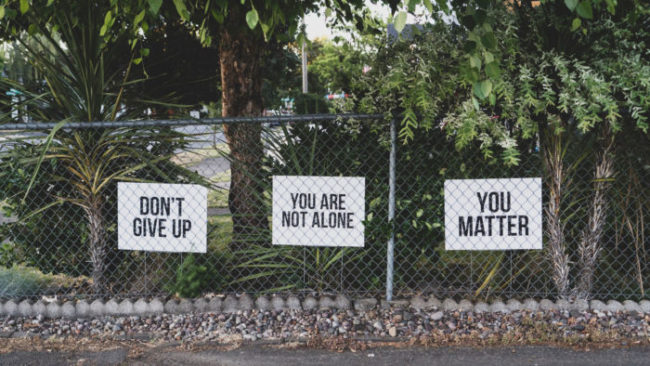
It is estimated that 1 in 5 Canadians will personally experience mental illness in any given year, with that number on the rise. Active duty and returning military veterans are amongst those most affected by mental health concerns. PTSD, or post-traumatic stress disorder, is one of the most common mental illnesses seen among veterans, however depression, anxiety, and substance abuse are also common. Veterans must be given the tools and resources to help combat operational stress injuries and preserve their mental wellbeing. However, that’s often easier said than done owing to the many barriers preventing veterans from accessing appropriate and sustainable mental health support. Although mental health stigma is reducing and awareness is increasing, military communities, as well as first responders and front-line workers, face additional obstacles preventing them from seeking out mental health support.
Below are 6 barriers preventing veterans from accessing mental health support and treatment for mental illness

1. Stigma
Stigma or mental health stigma refers to perceiving someone, or yourself, negatively because of mental illness. This may result in discrimination by others, or refusal to accept help or seek support for oneself. Unfortunately, mental health stigma exists in the broader community as well as in military circles. Many soldiers report stigma as a barrier to seeking support, describing a fear of being perceived as weak or feeling embarrassed for needing help. Part of mental health stigma involves difficulty admitting to psychological difficulties for fear of being treated differently, in particular at work, on duty, and amongst peers or coworkers. Stigma is also a leading cause for veterans to leave treatment and stop going to therapy.
2. Attitude towards mental health
Your pre-existing attitude towards mental health and healthcare in general impacts your ability to seek out support. Mental illness carries a certain emotional charge in many individuals, owing in part to the legacy of psychiatric treatment depicted in the media. For some, the idea of therapy brings to mind images of the insane asylum or the mad scientist. However, real mental health treatment could not be further from that exaggerated and outdated view. Nonetheless, the fear of mental illness is one of the barriers preventing veterans, and the population as a whole, from seeking support. This negative attitude towards mental health and treatment can sometimes lead individuals to believe their mental health is solely their responsibility and healing must be done on their own. This is not true! Mental health support is for everyone.
3. Mental illness prevents people from seeking mental health support
Unfortunately, one barrier to veterans seeking support for mental illness is because of the mental illness itself. Mental health disorders such as anxiety, depression, and PTSD are the most commonly seen disorders in veterans, and all share a common characteristic, which is withdrawing from others. Other symptoms include withdrawing from activities, mood changes, feelings of sadness and loss of hope, and experiencing excessive worry or guilt. Having a mental illness is a barrier to seeking support and this is all the more reason why, as a community, we must support one another.

4. Practical barriers
Not often thought about, but practical or logistical barriers, such as booking appointments, scheduling treatment, and organizing transportation are all barriers preventing veterans from accessing mental health support. Suffering from mental illness means sometimes seemingly simple, daily tasks are challenging, such as making a phone call or looking up a bus schedule. Many veterans report practical barriers as a reason for refusing or delaying treatment. Another practical barrier is the financial cost associated with treatment for mental illness.
5. Type of military service
Whether a veteran is deployed, sees combat, experiences bombings, as well as the length of deployment, are all factors when assessing the risk of mental illness as well as the likelihood of seeking treatment after service. The more traumatic the military service, the more likely a veteran will report a mental illness, which can impact their ability to seek treatment later.
6. Lack of social support
Lack of support is a huge indicator when it comes to seeking treatment for mental illness. Particularly support from their unit while on duty and support returning home after their service. When veterans are not married or come home to minimal social support they report greater barriers to receiving treatment for their mental illness. Perception of mental illness by their military unit and social network at home are also both predictive of whether a returning veteran will seek out relief from their mental health disorder.
Although many barriers are preventing military veterans from seeking out and accessing mental health support, there are many things you can do to support yourself and our vets.
4 ways to aid mental health support for military veterans

1. Advocate
Advocate for mental health for yourself, for the community, for men, for those serving our country, and for first responders and front line workers. No one is exempt from mental illness because of their gender or profession and no one should feel ashamed or embarrassed for needing treatment. Help work towards normalizing therapy and PTSD counseling.
2. Reach out
The idea of reaching out is often thrown onto the shoulders of those who are suffering, however, reaching out is everyone’s responsibility. If you know your loved ones are struggling or suspect they may need support because of the stress of their job or life, please get in touch with them. You don’t need an invitation to check on a vulnerable friend or extend a supportive hand. It’s often easier for the person not experiencing mental health issues to do the reaching – reach out to your loved ones.
3. Tell your story
Telling your story and sharing your experiences with PTSD, depression, anxiety, and other mental illnesses not only helps you heal, but it helps others heal by knowing they are not alone. Mental illness is isolating and building community through storytelling is an excellent way to help break down stigma and support those in need.
4. Share resources for mental health support
If you have first-hand experience accessing mental health support or are familiar with services that may benefit veterans and others please share them. Similarly to reaching out, you don’t need an invitation to relay this information. Make a Facebook post, send a text, comment on a blog, or tell a friend. Remember, practical barriers such as not knowing where to go or how to access mental healthcare services prevent veterans from receiving help. Please share your knowledge and resources. Online mental health resources are especially valuable at this time owing to Covid-19.
Supporting our first responders, our front-line workers, and our military veterans is crucial for supporting our community as a whole. Mental illness affects all of us directly and indirectly, and now, more than ever, it’s important we all do our part to reduce stigma, extend support, and share mental health resources.
